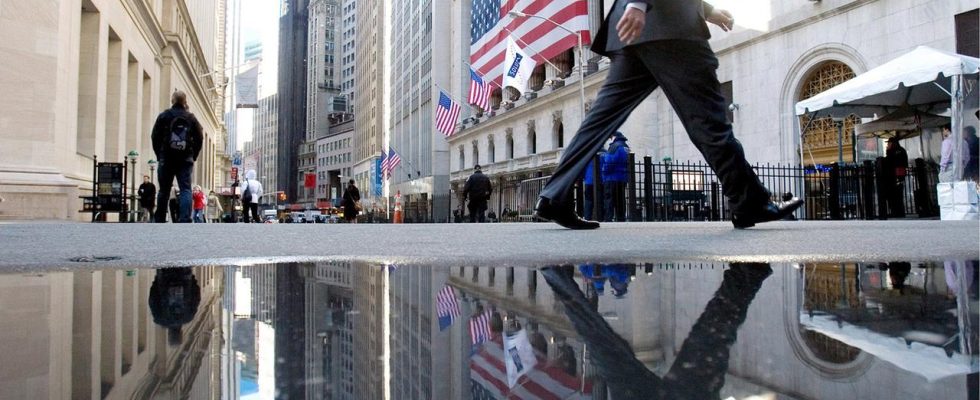The dispute over the US debt ceiling is being watched with some nervousness on the financial markets. What would be the consequences of a US default on stock exchanges around the world?
Negotiations have been going on for weeks – but so far there has been no breakthrough in the dispute over the debt ceiling in the USA. As early as June, the country is threatened with default if Republicans and Democrats do not agree on a debt ceiling. They don’t have much time left to find a solution to the debt dispute
A real nightmare scenario that could plunge the US economy and markets into severe turbulence. So far, the financial markets have not yet assumed this “worst case” scenario; but the longer an agreement drags on, the greater the consequences.
A scenario without a blueprint
The fact is: the USA has been on the verge of this several times, but national bankruptcy has never happened. Nevertheless, the concerns on the financial markets are great this time, because the economy in the USA is already ailing.
“I think the main reason for these fears is that there is no blueprint for what would happen if the world’s largest economy suddenly went bankrupt,” said Chris-Oliver Schickentanz, chief investment strategist at wealth manager Capitell Vermögens-Management. “Because that has never happened in history, so you don’t know what the consequences would be.”
The bond market is already unsettled
The argument about where to save and where to spend money has a long tradition in the USA. And so many analysts are certain that there will be a solution this time, even if the political rifts are deep. There has therefore been no major turbulence on the stock markets to date.
“The nervousness is reflected above all in the bond market,” said investment strategist Schickentanz. “We’re seeing more violent rashes, and you can also see that investors prefer to park their money on the sidelines and now wait and see how the showdown in Washington takes place.”
A look back at 2011 shows the consequences of the never-ending dispute over the debt ceiling – even if an agreement is reached at the last minute: The rating agency Standard & Poor’s downgraded the USA’s creditworthiness at the time. Investment costs skyrocketed.
Location not comparable to 2011
This scenario could now repeat itself. But while the US economy was on the upswing in 2011, things are different today: loans have become massively more expensive, and the banks’ credibility has been damaged. The US economy is threatened with recession.
“We now have years behind us in which the financial market did not bother about debt. It was about growth, it was about fighting the crisis,” explains Carsten Brzeski, chief economist at ING Bank. “And suddenly we see with this American example: The market is looking at debt again.”
This shows that politicians in the USA can hardly afford to actually let the country slide into bankruptcy in this situation. Even a brief default would have devastating consequences on the financial markets – and thus also for the citizens of the country.

